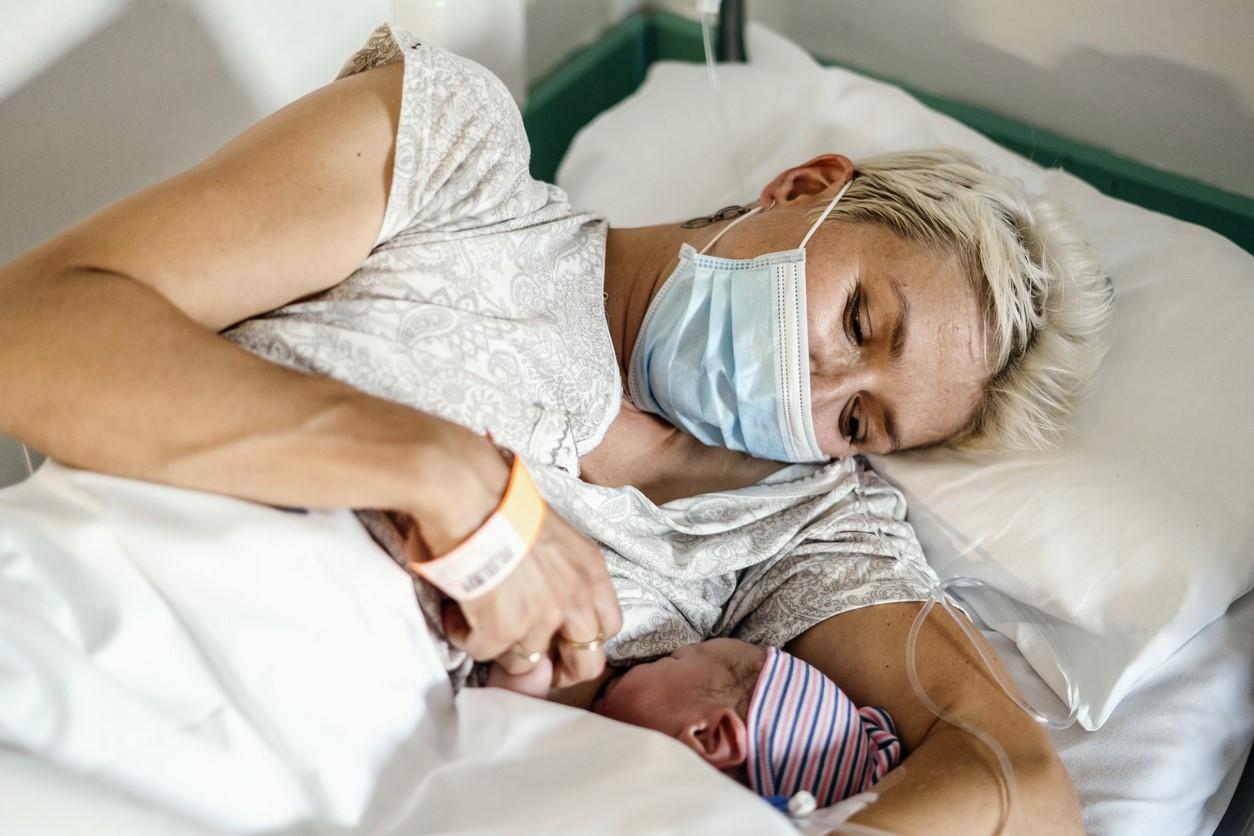The risk of maternal critical care admission and preterm birth were much lower amid dominance of the SARS-CoV-2 Omicron variant than during the Delta-dominant period, finds a Scottish study published late last week in The Lancet Respiratory Medicine.
A team led by University of Edinburgh researchers examined the maternal and pregnancy outcomes of 9,817 women with 9,823 pregnancies and 9,923 COVID-19 infections in a Scottish registry from May 17, 2021, to Jan 31, 2022. The study spanned the dominance of the Delta variant (May 17 to Dec 14, 2021) and Omicron (Dec 15, 2021, to Jan 31, 2022).
Fewer stillbirths amid Omicron
Each month of the Delta period, 1,710 to 2,658 per 100,000 pregnant women were infected, while the infection rate during Omicron was 11,011 per 100,000.
Relative to Delta cases, Omicron infections were tied to a lower risk of maternal critical care admission within 21 days of infection (0.3% of 4,968 vs 1.8% of 4,955; adjusted odds ratio [aOR], 0.25) and preterm birth within 28 days (1.8% vs 4.2%; aOR, 0.57). There were no maternal deaths within 28 days.
Estimates of low Apgar scores (indicating need for special neonatal care) lacked precision because of low numbers, at 11 (2.1%) of 528 with Delta and 5 (1.2%) of 423 with Omicron. Lower rates of stillbirths occurred during Omicron than during Delta (2 of 462 [4.3 per 1,000] births vs 13/639 [20.3 per 1,000]). Twelve of the 15 stillbirths occurred in women who had not received at least two doses of COVID-19 vaccine before their infections.
No newborns died amid Omicron (0/460 births, compared with 4/626 [6.3 per 1,000] during Delta, although the numbers were too small for adjusted analyses. Eleven newborns tested positive for COVID-19 in the 28 days after maternal infection during the Delta period, and 1 did so amid Omicron; all 12 cases occurred in the babies of unvaccinated or undervaccinated women.
"Pregnant women, health-care professionals, and policy makers should be aware of this information as it can inform mitigation measures, such as guidance on partners attending hospital and provision of assisted reproduction treatments for unvaccinated women," the study authors wrote. "Further studies are needed to assess longer-term pregnancy outcomes and rare outcomes such as stillbirth."
Study didn't capture key severe illnesses
In a related commentary, Nathalie Auger, MD, and Jessica Healy-Profitos, MPH, both of the University of Montreal Hospital Research Centre in Canada, said that the study was a much-needed demonstration of the generally less-risky nature of the Omicron variant but urged continued vigilance because the study had important limitations.
For example, the researchers didn't use an uninfected control group, provide information on the associations between infection and outcomes among vaccinated women, or estimate the risks of more severe maternal outcomes such as respiratory failure, heart failure, and eclampsia (dangerously high blood pressure in pregnancy) that wouldn't be captured by critical-care admissions, they said.
"It would not be surprising to find that omicron continues to drive severe maternal respiratory morbidity, considering the known respiratory effect of SARS-CoV-2 and hospitalisation rates that have yet to return to normal," Auger and Healy-Profitos wrote.





















